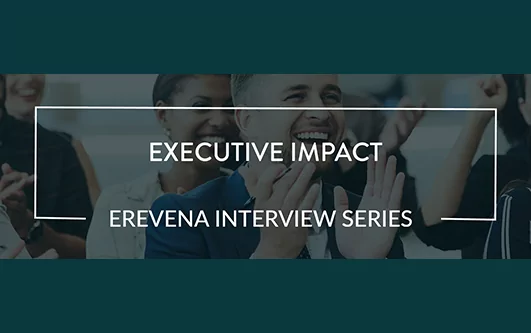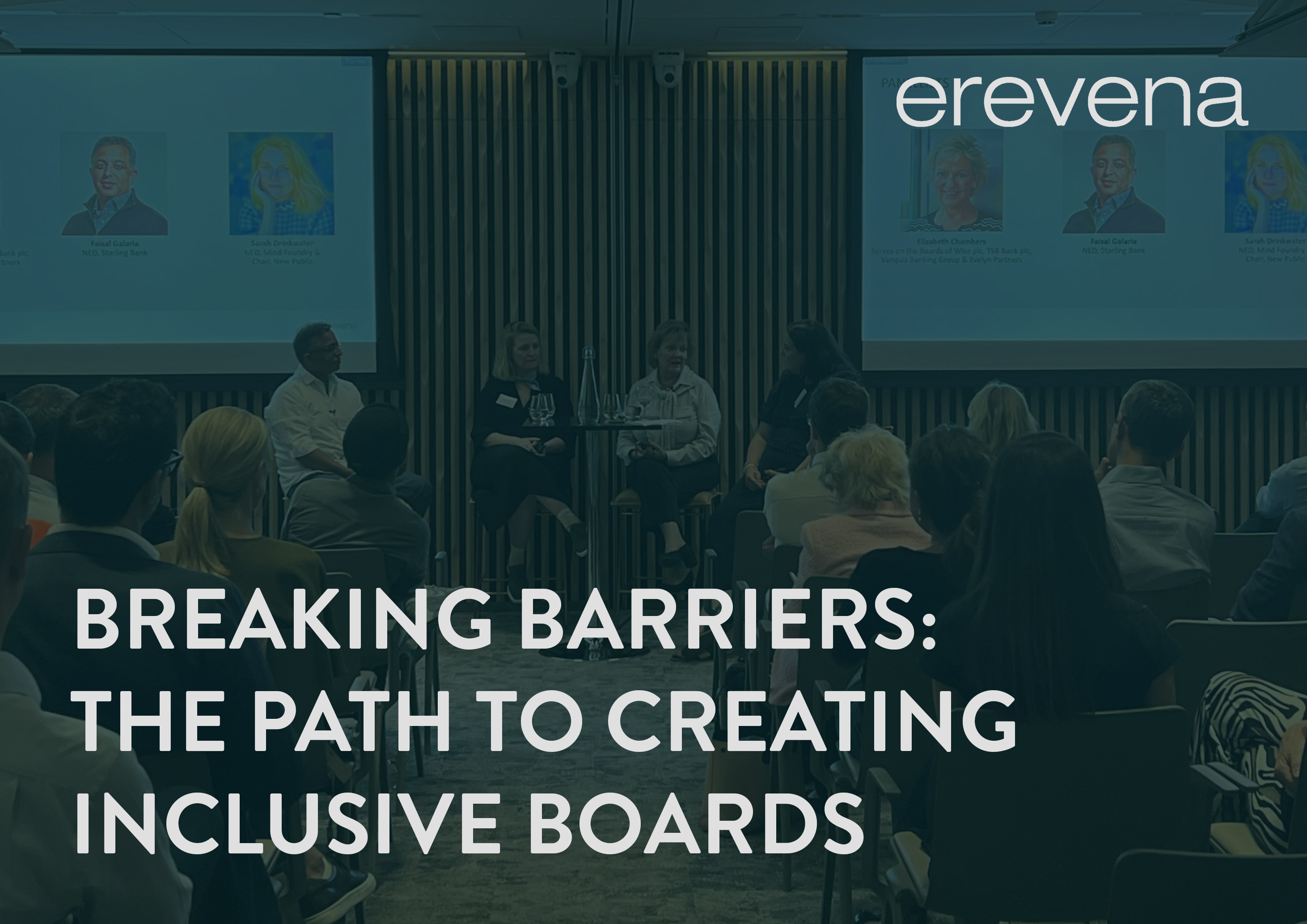Our Executive Impact Spotlight series focuses on exceptional individuals that we have placed into stellar organizations and the impact they have had (or will have) since joining. In this interview Nicolas Huss, talks to Erevena, about his role as a Non-Executive Director on the Board at Entersekt – and why it’s all about the company, not about the NED.
An experienced board-level executive and CEO with 20 years’ experience in financial services and payments with companies such as Ingenico Group and Visa, Nicolas Huss is now seeing life from a different perspective as he settles into his role as a non-executive director (NED) for global fintech company Entersekt.
Can you tell us a little about Entersekt and what they do?
They are a South African fintech founded in Cape Town less than 10 years ago specialising in payments security technology. Working mostly for banks, their patented device identity and authentication technology enables consumers to transact digitally in a secure way. It is a very specialised industry and highly technical.
What attracted you to join the board of Entersekt?
I liked the fact that Entersekt wasn’t a pure start-up. They already had a great market share in South Africa and were looking to expand internationally, which is where I felt I could be of help. I have spent the past 10 years around international payments, although less so in South Africa, and can provide a different perspective on the industry – a 360-degree ecosystem perspective.
Our common interest is payments, but we come at it from different angles. Entersekt has pioneered payments technology, whereas I am an executive and my life has been about running companies. I see my role as being a bridge between the management team, Entersekt’s shareholders and the broader payments industry.
Was it difficult interviewing and joining the Board during lockdown?
It wasn’t difficult for me as I am used to working remotely. At the Ingenico Group, where I was CEO until last year, we operated in 170 countries, so life was always about video conferencing. It was probably harder for the Entersekt team making the appointment than for me.
What is involved in your role?
It is a classic NED role, with close interaction with the Entersekt management. I came on board in November 2020 and am trying to spend time with the management team to understand the challenges and issues they’re facing. For example, they have a strategy to expand internationally, but can’t travel at the moment due to the pandemic. Covid is also causing delays in the Request for Proposal (RFP) process, which is having an impact on business. I am looking at the strengths and weaknesses of their proposals for banking and have been introducing them to clients I’ve previously worked with in this sector. We’re getting good feedback that there is real value in Entersekt’s proposition.
How do you quickly make an impact as a NED?
Being a NED is different to being an executive where I always knew what to do when I touched down in a company. As a NED, you’re there to make a different impact and you need time to build trust and credibility in what you can bring to the table. I think it could take up to a year before my impact is fully felt but, in the meantime, I feel I am adding value through my interactions with the board. It is certainly more complicated in today’s environment where the rhythm and pace of business has changed so much over the past year.
How can you measure your impact?
Some NEDs would say it’s the number of their ideas that are adopted by the company, but I look at it differently. I am more interested in taking the best decisions for Entersekt. That might mean I have to adopt an impersonal stance because I need to ask what would I shoot for if I were in charge – and how would we get there? The Board must always look to fulfil both short- and mid- to longer-term growth strategies.
I would like to look back in four to five years’ time and say that the Board has kept the company safe and delivered what was needed to ensure success. Our first responsibility is to the company and its stakeholders, from management and employees to shareholders and the customers. And we mustn’t forget the end consumer – our customers’ customers. Entersekt enables payment trust and we have a dramatic responsibility in a bank’s relationship with its customers.
How do you prioritise what’s important?
In my case, there are investment/private equity specialists on the Board and I leave that part of the business to them, although I do offer an opinion from a payments industry perspective. Instead, I try to spend my time on management, strategy, operational delivery and geographies. It’s here that I can bring value.
How do you quickly establish a relationship with the CEO – especially if you are challenging management decisions?
This was one of the key criteria for joining. CEO Schalk Nolte and I spent time together, building an understanding of each other and assessing our cultural fit. I also wanted to make sure there were no ‘red flags’ in terms of management priorities. Now that I’m on board, we keep in touch regularly and, as CEO, he informs the Board of company developments. I also let Schalk know about my interaction with his teams. For example, I organised a meeting between Entersekt’s team in Europe and a leading payment security consulting company, and we have had exchanges on the best strategy to take this forward. We’re also trying to embed ourselves with a digital platform developer to add value to their products. It’s important to keep engaging and interacting with the management team.
Is it difficult to balance your time in terms of how involved you get?
No, it’s easy for me. I was an executive until three months ago, so have been in the management team’s shoes and know where and when to stop. I thought it might be hard, but it hasn’t been. My first Board role was with the Amadeus Group, which had a very structured approach, making it easy to understand when work stopped. I can bring that experience to my current NED role.
What advice would you give someone considering an NED role?
It’s a complicated role. You should consider carefully if it is what you want to do and how to play it. Be certain that you are doing it for the company and not for yourself. My view is that if you start with your personal drivers, you are wrong. A NED should be passionate about the business and consider the scope of the role. How do you bring value? Do you have the skills and means to understand the complexity of the industry? I recently refused an invitation to join a prestigious company Board because I realised that the scope was not within my skillset. It’s important to bring something of yourself in terms of both your character and your skills. And, of course, passion.
And finally, we spoke to CEO Schalk Nolte about the impact he sees Nicolas making on the company…..
We are still early into Nicolas’ appointment to the Board however, it is clear he will be adding significant impact over the coming quarters. We envisage his impact being far wider across the business than purely at a strategic board level. He is a brilliant addition as an independent, and we are delighted to have had him join.
Share this article:












